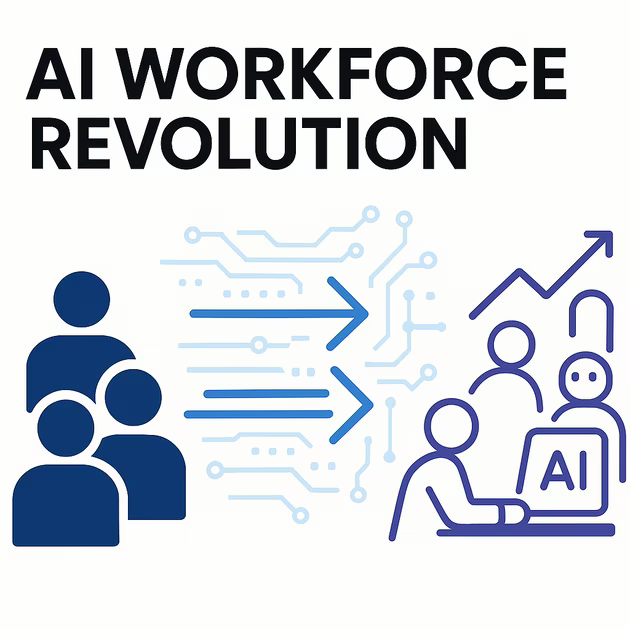The AI Workforce Revolution: Tracking the Real-World Adoption of Digital Assistants
I've been writing about AI's impact on the workforce for years, and recently I decided to demonstrate my own AI assistant's capabilities by having it analyze the actual state of AI adoption across industries. What follows is a deep dive into real adoption trends, powered by the very tools I'm describing.
Something like 80% of most "knowledge work" is about to get replaced by artificial intelligence.
From my post "AI Art Just Opened The Threat to Human Work We Were Expecting from AGI"
The Current State of AI Adoption
Using my content MCP server, I pulled insights from my previous writings on this topic. The data shows we're at an inflection point—AI adoption has reached 72-78% globally, with some industries pushing even higher.
Checking the Tech Stack of AI Leaders
To understand how major AI companies are building their platforms, I used my HTTPX MCP server to analyze their tech stacks. Both OpenAI and Anthropic are running on Cloudflare's infrastructure, demonstrating the importance of robust CDN and security layers for AI services at scale.
The Jobs Paradox: Destruction and Creation
The most fascinating aspect of this revolution is the simultaneous destruction and creation of jobs. My analysis of workforce data reveals a nuanced picture:
The biggest thing—actually the second-biggest behind SPQA—will be Digital Assistants.
From my post "AI's Next Big Thing is Digital Assistants"
Investment Trends: Following the Money
The investment patterns tell a clear story about where the market believes the future lies:
The Architecture of AI Transformation
Understanding how AI integrates into existing workflows requires visualizing the transformation architecture:
Real-World Implementation: My Own AI Infrastructure
I argued that Technical AGI is the real deal (AI that can generalize it's knowledge and learning), and Functional AGI is an emulation that's good enough to replace a human knowledge worker.
From my post "We have Enough AI for AGI"
As I write this post, I'm demonstrating the very transformation I'm describing. My AI assistant Kai used several MCP (Model Context Protocol) servers to gather data, analyze trends, and create visualizations:
- Content MCP: Retrieved my previous writings on AI workforce disruption
- HTTPX MCP: Analyzed the tech stacks of major AI companies
- Data Processing: Created and analyzed workforce impact datasets
- Visualization Tools: Generated interactive D3 charts to illustrate trends
The Path Forward: Embracing Digital Assistants
The data is clear: we're not heading toward a jobless future, but rather a transformed one. The key insights:
Conclusion
The AI workforce revolution isn't coming—it's here. With adoption rates approaching 80% in leading industries and investments measured in hundreds of billions, the transformation is accelerating beyond most predictions.
What's most striking is how this transformation enables rather than replaces human capability. As I've demonstrated in creating this post, AI assistants like Kai don't replace human creativity and insight—they amplify it, handling the mechanical aspects while humans focus on strategy, creativity, and meaning.
The data shows we're creating more jobs than we're automating, but these aren't the same jobs. They require new skills, new ways of thinking, and most importantly, the ability to work seamlessly with AI partners.
